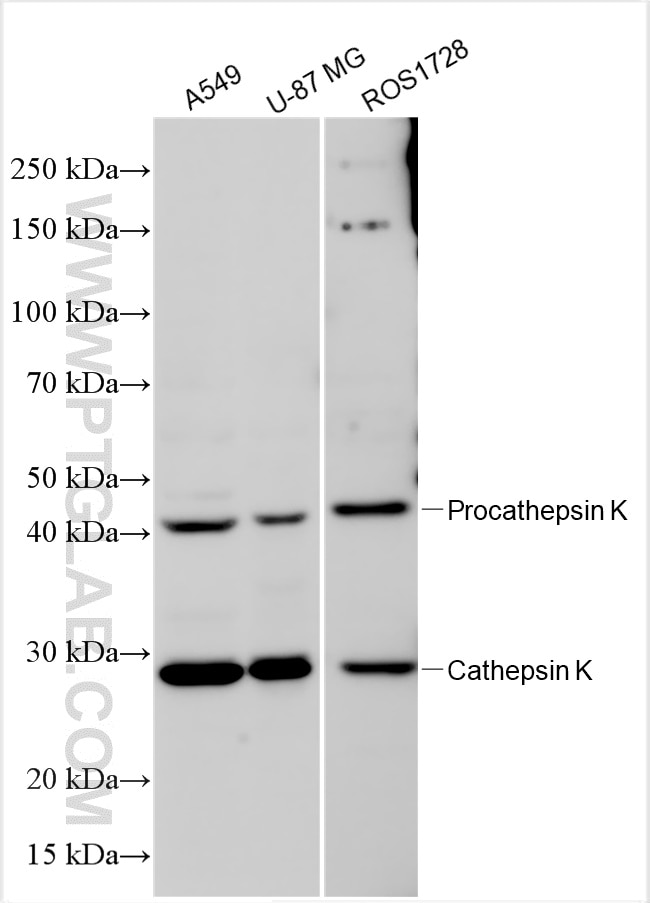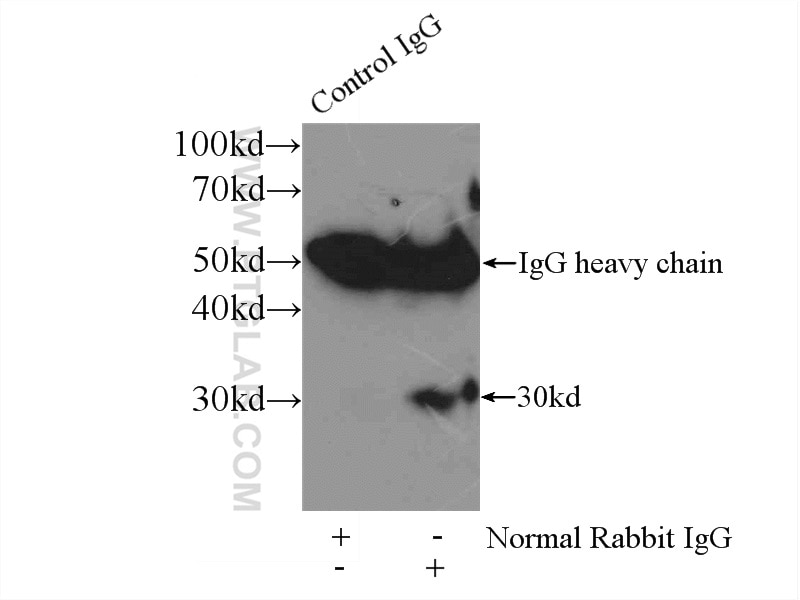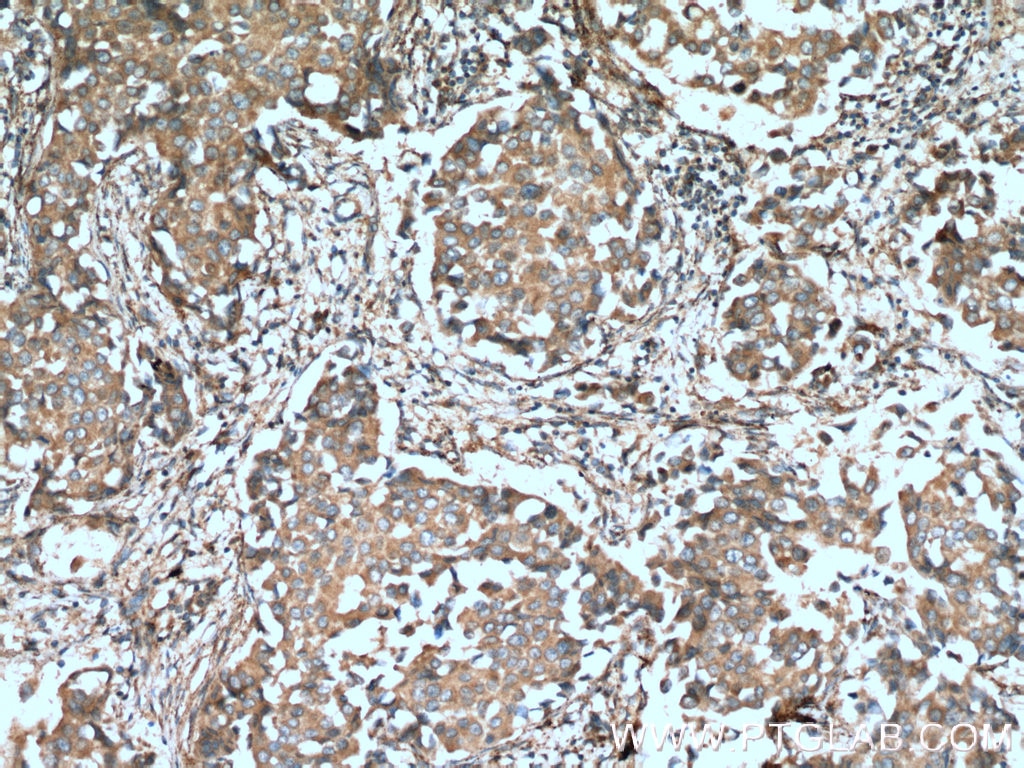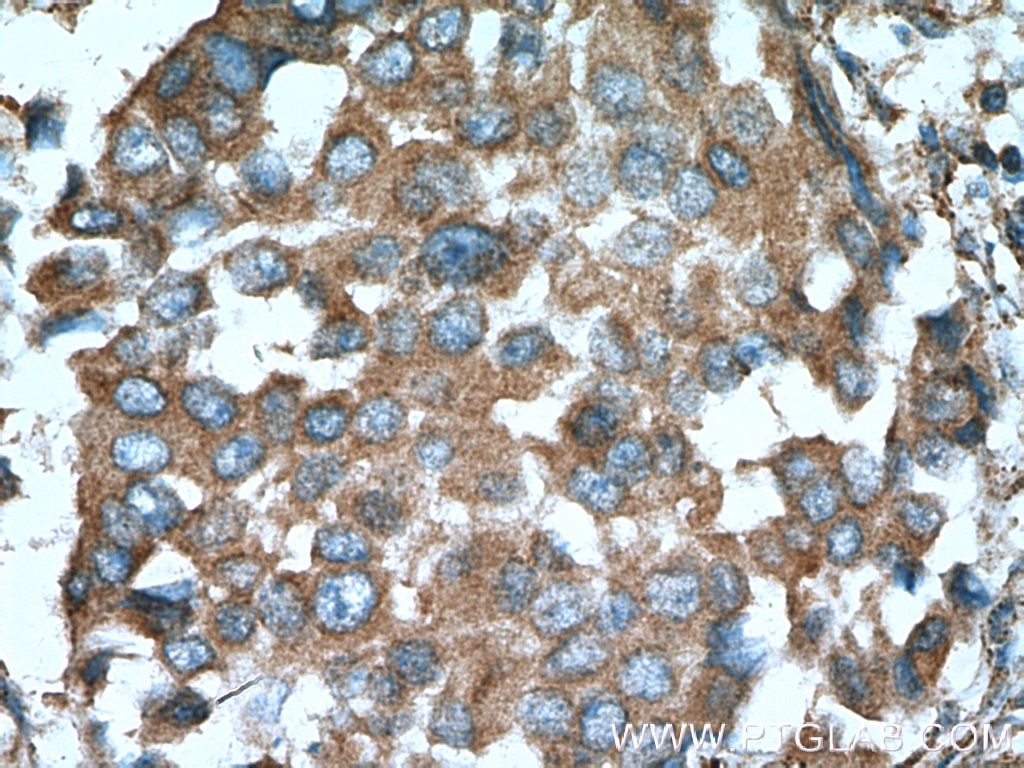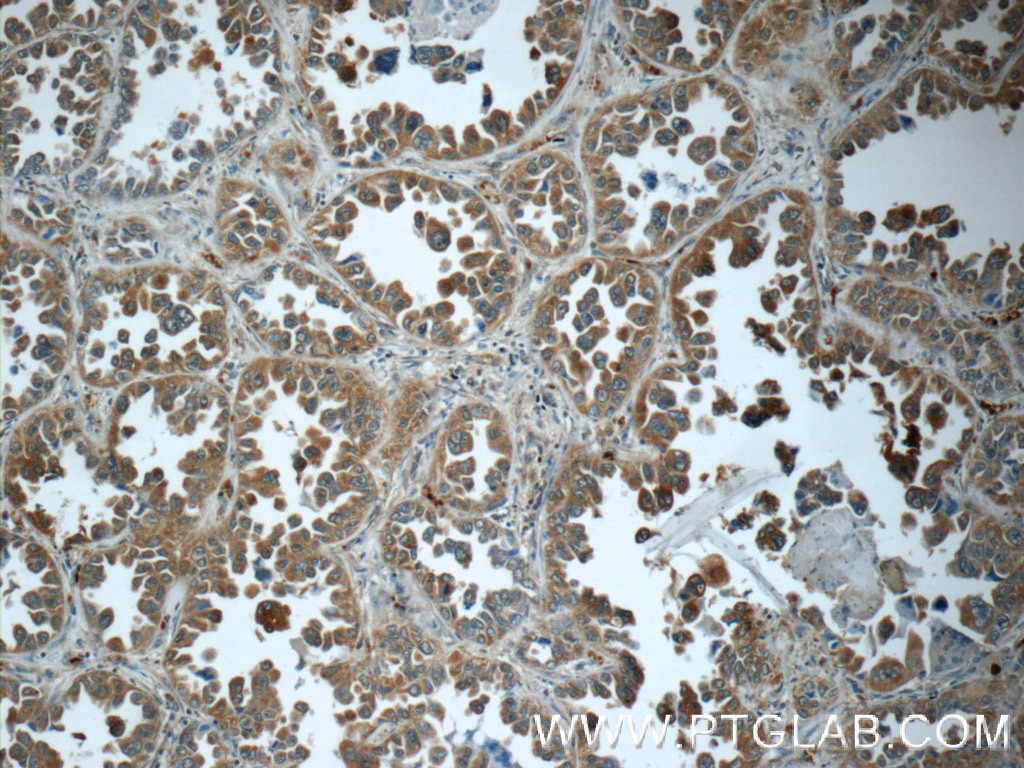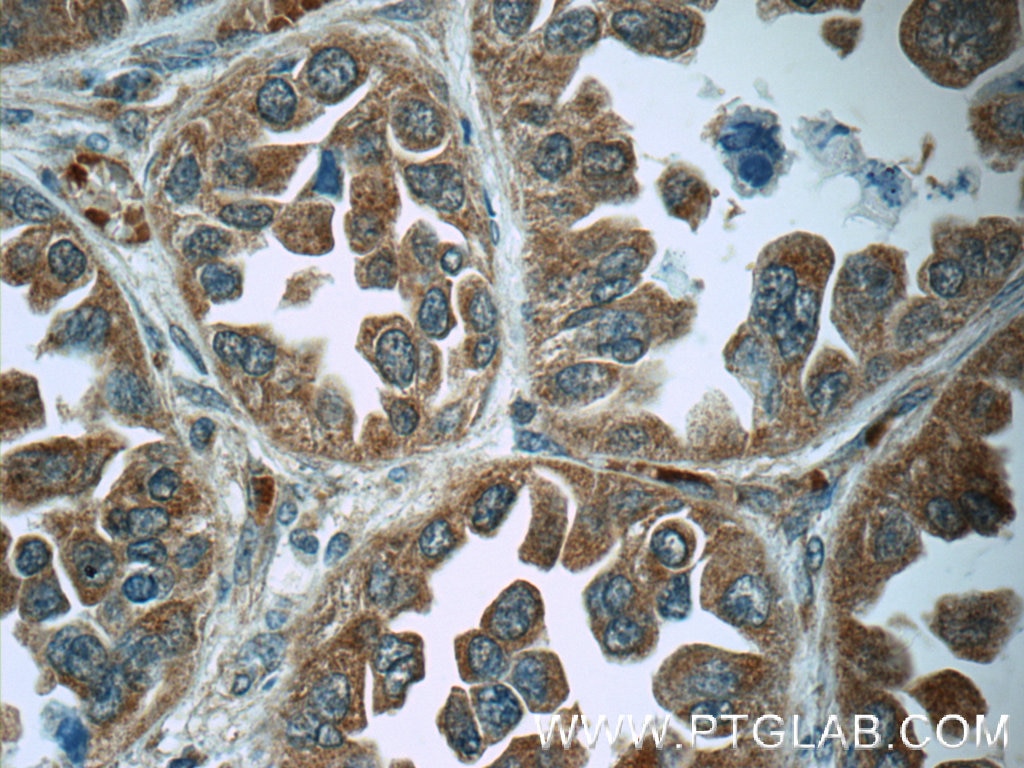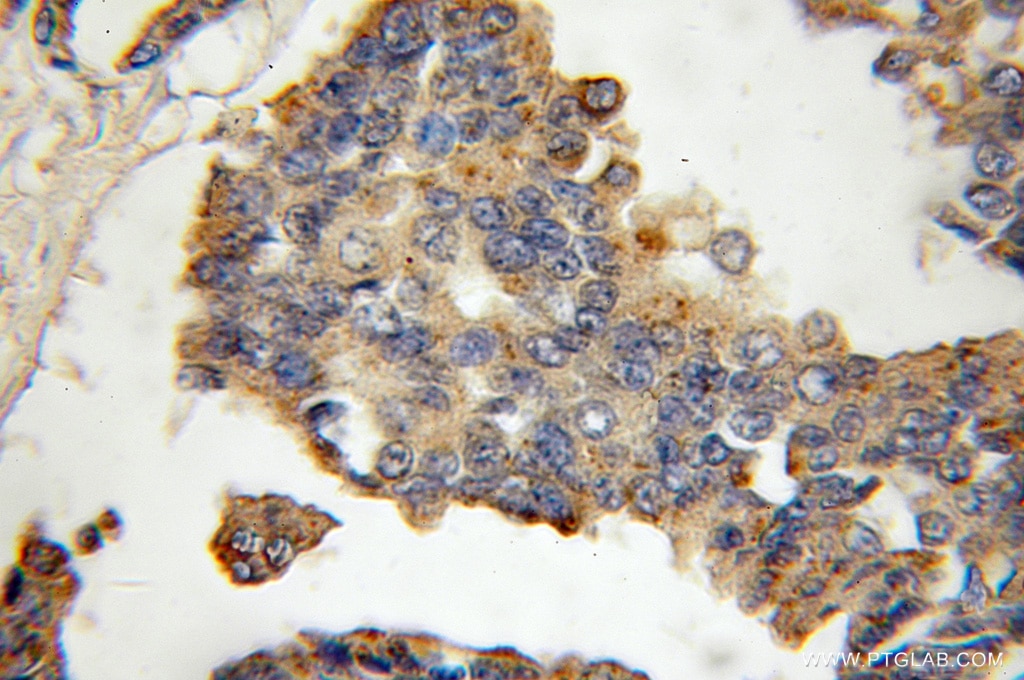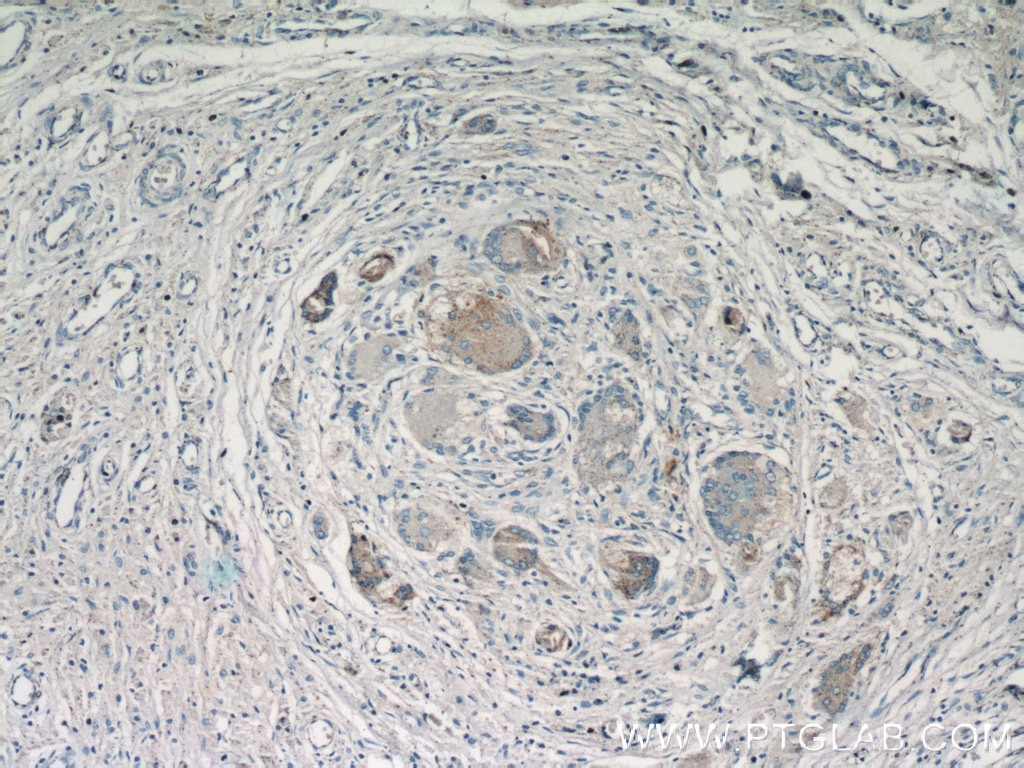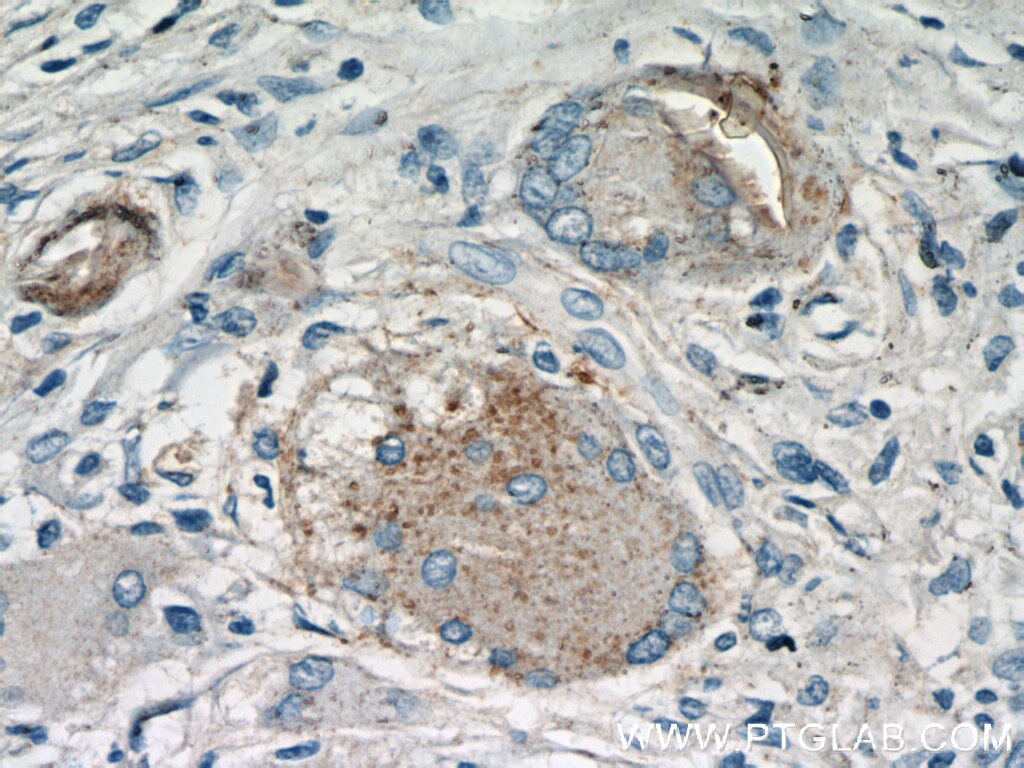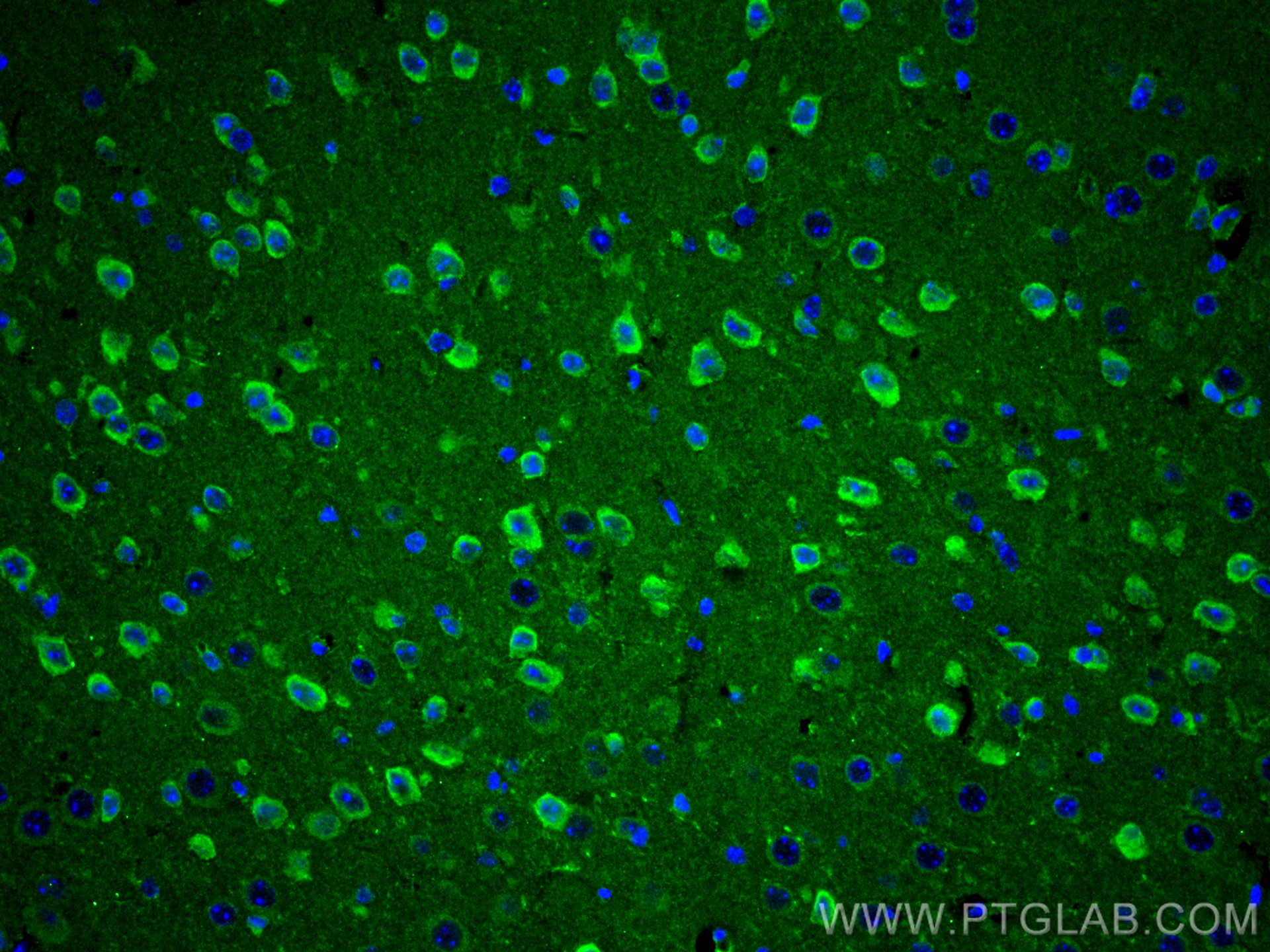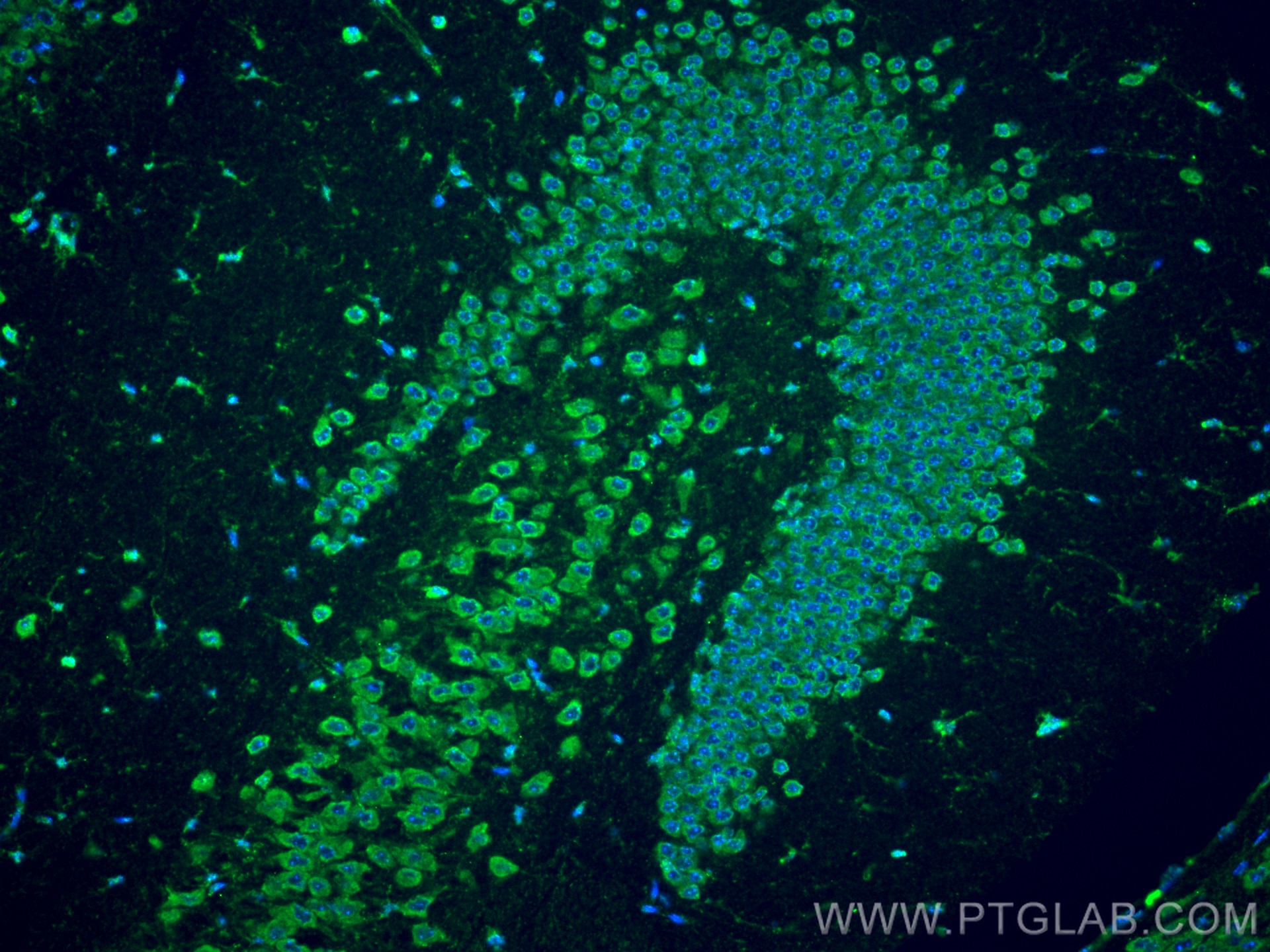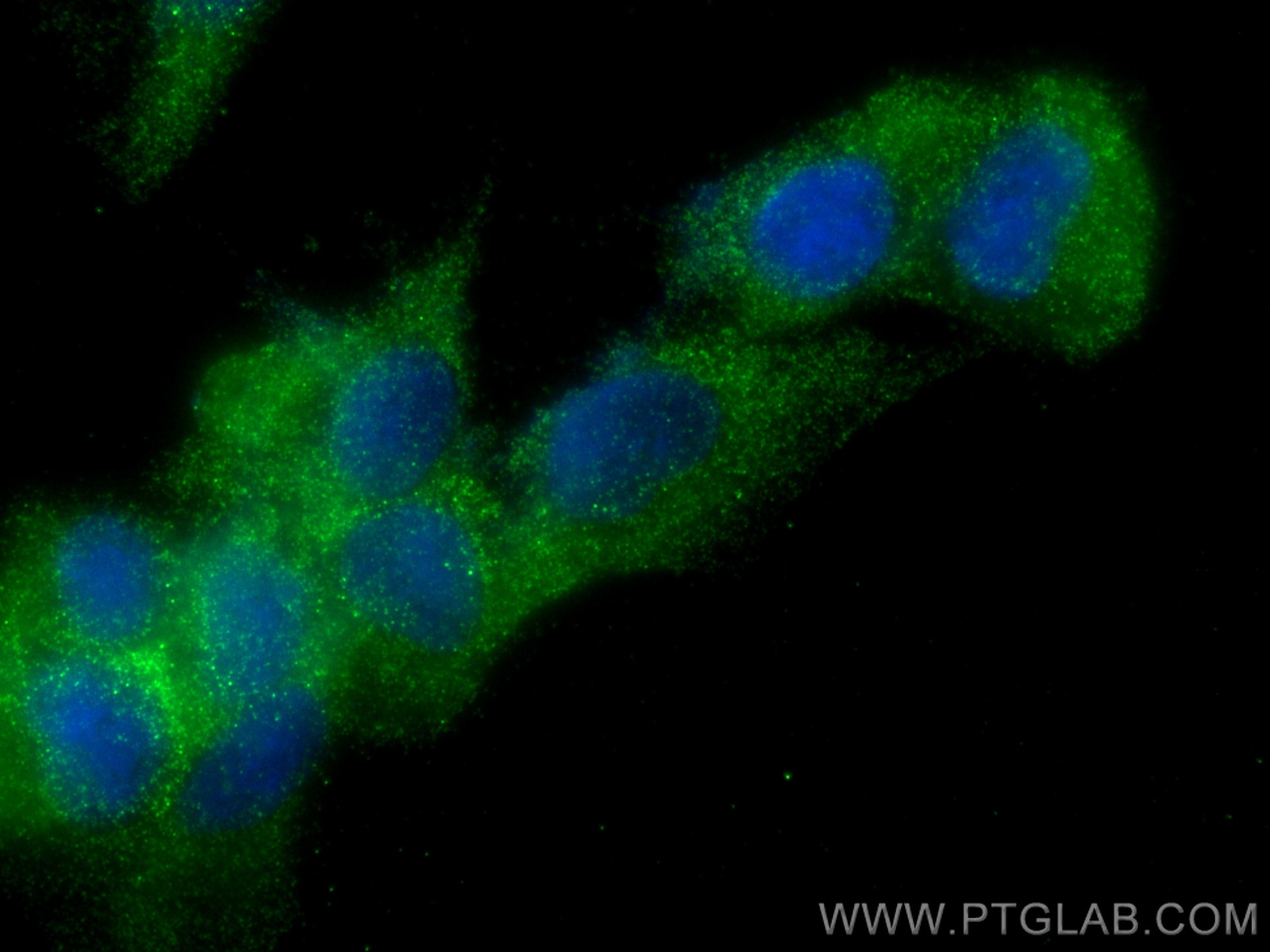- Phare
- Validé par KD/KO
Anticorps Polyclonal de lapin anti-Cathepsin K
Cathepsin K Polyclonal Antibody for WB, IHC, IF/ICC, IF-P, IP, ELISA
Hôte / Isotype
Lapin / IgG
Réactivité testée
Humain, rat, souris et plus (1)
Applications
WB, IHC, IF/ICC, IF-P, IP, ELISA
Conjugaison
Non conjugué
N° de cat : 11239-1-AP
Synonymes
Galerie de données de validation
Applications testées
| Résultats positifs en WB | cellules A549, cellules MG U-87, cellules ROS1728 |
| Résultats positifs en IP | cellules ROS1728 |
| Résultats positifs en IHC | tissu de cancer du sein humain, tissu de cancer du poumon humain, tissu d'ostéosarcome humain il est suggéré de démasquer l'antigène avec un tampon de TE buffer pH 9.0; (*) À défaut, 'le démasquage de l'antigène peut être 'effectué avec un tampon citrate pH 6,0. |
| Résultats positifs en IF-P | tissu cérébral de souris, |
| Résultats positifs en IF/ICC | cellules ROS1728, |
Dilution recommandée
| Application | Dilution |
|---|---|
| Western Blot (WB) | WB : 1:500-1:1000 |
| Immunoprécipitation (IP) | IP : 0.5-4.0 ug for 1.0-3.0 mg of total protein lysate |
| Immunohistochimie (IHC) | IHC : 1:100-1:400 |
| Immunofluorescence (IF)-P | IF-P : 1:50-1:500 |
| Immunofluorescence (IF)/ICC | IF/ICC : 1:200-1:800 |
| It is recommended that this reagent should be titrated in each testing system to obtain optimal results. | |
| Sample-dependent, check data in validation data gallery | |
Applications publiées
| KD/KO | See 1 publications below |
| WB | See 68 publications below |
| IHC | See 14 publications below |
| IF | See 19 publications below |
Informations sur le produit
11239-1-AP cible Cathepsin K dans les applications de WB, IHC, IF/ICC, IF-P, IP, ELISA et montre une réactivité avec des échantillons Humain, rat, souris
| Réactivité | Humain, rat, souris |
| Réactivité citée | rat, Humain, poisson-zèbre, souris |
| Hôte / Isotype | Lapin / IgG |
| Clonalité | Polyclonal |
| Type | Anticorps |
| Immunogène | Cathepsin K Protéine recombinante Ag1761 |
| Nom complet | cathepsin K |
| Masse moléculaire calculée | 39 kDa |
| Poids moléculaire observé | 27 kDa, 38~46 kDa |
| Numéro d’acquisition GenBank | BC016058 |
| Symbole du gène | Cathepsin K |
| Identification du gène (NCBI) | 1513 |
| Conjugaison | Non conjugué |
| Forme | Liquide |
| Méthode de purification | Purification par affinité contre l'antigène |
| Tampon de stockage | PBS with 0.02% sodium azide and 50% glycerol |
| Conditions de stockage | Stocker à -20°C. Stable pendant un an après l'expédition. L'aliquotage n'est pas nécessaire pour le stockage à -20oC Les 20ul contiennent 0,1% de BSA. |
Informations générales
CTSK(cathepsin K), also named CTSO, CTSO2, is a recently identified lysosomal cysteine proteinase. CTSK is synthesized as a proenzyme of 38 kDa and subsequently enters acidic lysosomal compartments, in which the propeptide is cleaved and transformed into an active enzyme and it may influence adipocyte differentiation through modifying extracellular matrix components(PMID:16912123). It is revealed both the 46-kDa cathepsin-K precursor and the 30-kDa mature form in mouse bone extracts (PMID:9811821). The high CTSK protein levels are only detected in primary cultured fibroblasts derived from normal and neoplastic breast tissue, where the 37- and 25-kDa bands to be detected correspond to pro- and mature proteins through western blot (PMID:18765527). The full length protein has a signal peptides with 15 amino acids and a propeptide with 99 amino acids. CTSK may have cross reaction with the other members of cathepsin family and form a complex of 70 kDa with an unidentified subunit(PMID:1930136).
Protocole
| Product Specific Protocols | |
|---|---|
| WB protocol for Cathepsin K antibody 11239-1-AP | Download protocol |
| IHC protocol for Cathepsin K antibody 11239-1-AP | Download protocol |
| IF protocol for Cathepsin K antibody 11239-1-AP | Download protocol |
| IP protocol for Cathepsin K antibody 11239-1-AP | Download protocol |
| Standard Protocols | |
|---|---|
| Click here to view our Standard Protocols |
Publications
| Species | Application | Title |
|---|---|---|
Biomaterials BMP2 immune complexes promote new bone formation by facilitating the direct contact between osteoclasts and osteoblasts. | ||
Dev Cell Gasdermin D maintains bone mass by rewiring the endo-lysosomal pathway of osteoclastic bone resorption | ||
ACS Appl Mater Interfaces Nel-like Molecule Type 1 Combined with Gold Nanoparticles Modulates Macrophage Polarization, Osteoclastogenesis, and Oral Microbiota in Periodontitis | ||
Br J Pharmacol Andrographolide prevents bone loss via targeting ERRalpha-regulated metabolic adaption of osteoclastogenesis. | ||
Arthritis Rheum Osteoarthritic change is delayed in a Ctsk-knockout mouse model of osteoarthritis. |
Avis
The reviews below have been submitted by verified Proteintech customers who received an incentive for providing their feedback.
FH Isabel (Verified Customer) (07-03-2020) | Antibody worked really well to detect Cathepsin K in protein from mouse osteoclasts. Blot was really clean with no other bands.
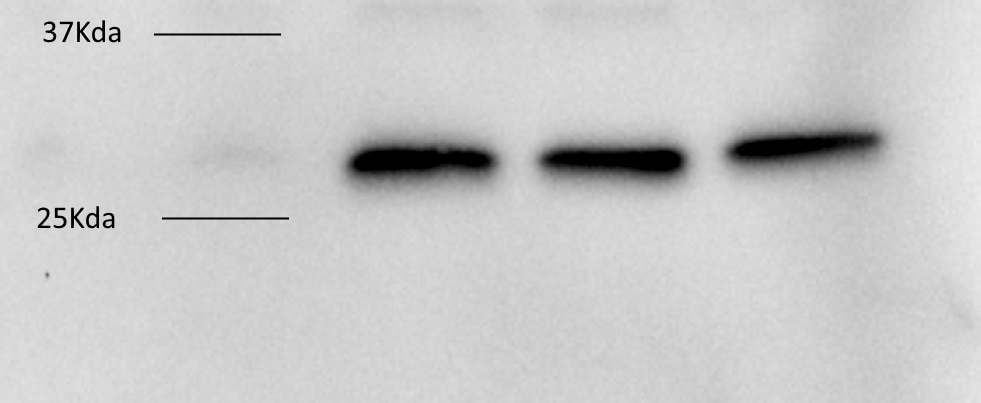 |
FH RICHA (Verified Customer) (10-09-2019) | Good but hard to get the signal
 |
